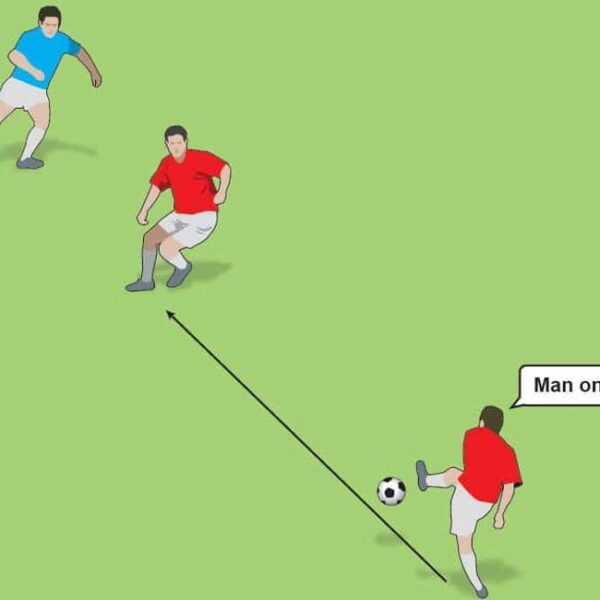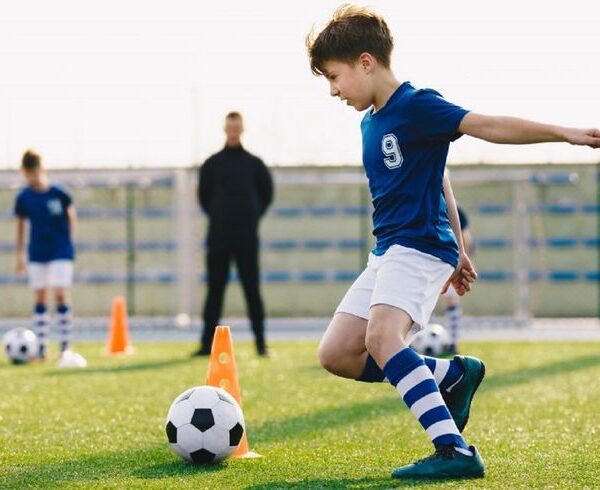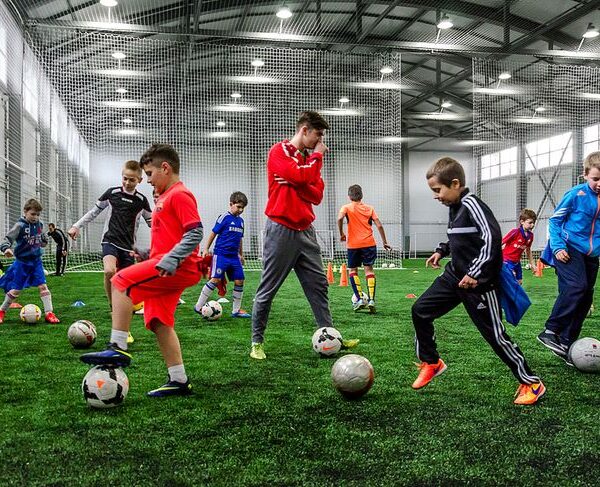Introduction
Football is a game of precision, strategy, and skill. At its heart lie a set of fundamental techniques that every player—beginner or professional—must master. Whether you’re aspiring to become a striker or a steadfast defender, understanding and honing basic football skills is crucial for success on the pitch. This article explores what is the most important basic skills in football and why mastering them sets the foundation for greatness.
Understanding the Foundation of Football Skills
The magic of football starts with the basics. Just as a building cannot stand tall without a solid foundation, a footballer cannot excel without mastering fundamental skills. From controlling the ball to passing and positioning, these basics form the building blocks that lead to more advanced play. Without them, even the most talented players struggle to shine consistently on the field.
The Core Criteria for Determining Skill Importance
To determine the most important basic skill in football, several core criteria must be considered:
- Applicability to all positions: A skill must be useful whether you’re a goalkeeper, midfielder, or forward.
- Frequency of use: Skills that are used repeatedly during matches have greater value.
- Game impact: The ability of a skill to change the outcome of a match or enhance team strategy is key.
When viewed through this lens, certain skills clearly rise above the rest in terms of importance.
Ball Control: The Bedrock of Football Mastery
If there’s one skill that sits at the core of football excellence, it’s ball control. It allows players to maintain possession, set up plays, and adapt to unpredictable in-game situations. Good ball control minimizes turnovers and ensures smoother transitions during attacks or defense.
Key Ball Control Drills
- Toe touches and inside-inside drills
- Juggling with both feet
- First-touch training with a wall or partner
Developing excellent ball control builds confidence and composure—traits essential for every footballer on the field.
Passing Accuracy: The Language of Team Play

Football is inherently a team sport, and passing is its primary language. Accurate passing fosters fluid movement and coordinated attacks. Players who can deliver precise passes increase their team’s ability to control the pace and rhythm of a match.
Short vs. Long Passes
Short passes are essential for maintaining possession and working through tight defensive lines, while long passes are vital for switching play and launching counter-attacks. Both require precision and timing to be effective.
Training with cone drills, wall passing, and under-pressure scenarios can significantly improve passing consistency and confidence.
Dribbling: The Art of Ball Movement
Dribbling is what allows players to move with the ball while evading opponents. It combines speed, foot coordination, and creativity. Mastering dribbling not only helps retain possession but also opens up space for team opportunities.
More About Fastest Football Player in the World
Dribbling Techniques to Master
- Inside and outside cuts
- Step-overs and feints
- Body swerves and change of pace
Effective dribbling is often what separates a good player from a game-changer, especially in high-pressure situations.
Shooting: Turning Opportunities Into Goals
Shooting is the final execution that turns efforts into results. Accuracy, timing, and power are all key elements of successful shooting. Even players in non-striking roles need shooting capabilities to take advantage of loose balls and rebounds.
Improving Your Shooting
- Practice both feet for balanced shot options
- Work on finishing drills from different angles
- Focus on composure during 1v1 situations with the keeper
Repetition, along with feedback from coaches, refines shooting technique and goal conversion rate.
Defensive Skills: Tackling and Positioning
Defense is more than just stopping an opponent—it’s about smart positioning and clean, well-timed tackles. Effective defenders read the game, anticipate movements, and neutralize threats without fouling.
Key Defensive Skills
- Jockeying and body orientation
- Standing tackles vs. slide tackles
- Covering space and team coordination
Practicing defensive drills sharpens a player’s awareness, agility, and ability to contribute meaningfully during transitions.
Physical Fitness: Endurance, Speed, and Agility
While technique matters, physical conditioning is equally important. Football requires players to sprint, jog, and recover repeatedly over 90 minutes. Without proper endurance and agility, even the most skilled players can falter.
Fitness Routines for Footballers
- Interval and endurance training
- Agility ladders and cone drills
- Strength training for injury prevention
A well-conditioned body supports quicker decisions, better movements, and reduced risk of fatigue or injury.
Game Intelligence and Decision Making
Football intelligence is the ability to read the game and make fast, effective decisions. It’s what allows players to anticipate plays, position themselves effectively, and make strategic choices under pressure.
Developing Game IQ
- Watching professional matches analytically
- Simulating game scenarios during training
- Playing different positions to understand roles
Smart players often outperform technically gifted ones by being consistently in the right place at the right time.
Communication and Team Coordination
Football is not an individual sport—it’s a synchronized team effort. Effective communication enhances team coordination, reduces errors, and creates a sense of unity on the pitch. Both verbal and non-verbal communication are essential for quick decision-making and situational awareness.
Tips for Better Team Communication
- Use clear calls like “man on” or “switch”
- Develop hand signals for non-verbal cues
- Establish strong rapport during training sessions
Teams that communicate well often outperform more technically gifted teams due to superior coordination.
Mental Toughness and Focus

Mental strength is what separates good players from great ones. Handling pressure, staying focused under stress, and bouncing back from mistakes are crucial aspects of football psychology. It empowers players to remain composed, especially during critical moments.
How to Build Mental Resilience
- Practice visualization and mindfulness techniques
- Set short and long-term performance goals
- Reflect on performance to learn and grow
Elite athletes often credit their mindset as the key to consistent top-level performance.
Youth vs. Professional Priorities in Skill Development

The importance of basic skills varies across age groups. For youth players, emphasis should be placed on technical development and enjoyment. For professionals, decision-making, tactical awareness, and consistency take precedence.
Key Development Focuses by Level
- Youth: Ball control, dribbling, fun-based drills
- Intermediate: Passing accuracy, positioning, fitness
- Professional: Tactical execution, mental sharpness, precision
Understanding these developmental phases allows players and coaches to tailor training effectively.
Training Techniques to Master Basic Skills
Consistent, targeted practice is essential for skill mastery. Training should incorporate repetition, game-like scenarios, and ongoing feedback. A structured regimen can accelerate improvement and reinforce muscle memory.
Effective Training Strategies
- Use drills that simulate match conditions
- Track progress through video analysis
- Include recovery and review sessions
Mixing intensity with variety keeps sessions productive and engaging.
The Role of Coaches in Skill Cultivation
Coaches play a pivotal role in identifying, developing, and refining a player’s basic skills. They not only instruct but also inspire and correct. A great coach fosters discipline, confidence, and a hunger to improve.
What Makes an Effective Coach?
- Clear communication and constructive feedback
- Ability to adapt drills to individual needs
- Fostering a growth mindset in players
Players under thoughtful coaching guidance often develop more quickly and sustainably.

Most Underrated Yet Crucial Basic Skills
While ball control and passing often get the spotlight, certain skills like first touch, anticipation, and spatial awareness are underrated yet vital. These “invisible” skills form the foundation for smooth, intelligent play.
Key Underappreciated Skills
- First Touch: Controls tempo and options
- Anticipation: Preempts opponents’ moves
- Spatial Awareness: Helps make smarter plays under pressure
Elite players often distinguish themselves with superior execution of these subtle but game-defining skills.
The Verdict: What Is the Most Important Basic Skill in Football?
After evaluating all core and complementary skills, ball control stands out as the most important basic skill in football. It’s the root of every successful play—whether passing, shooting, or defending. Without good ball control, even the best strategy or positioning can fall apart.
Backed by expert opinions and real-world examples, mastering ball control unlocks the full potential of other technical and tactical skills. It’s the anchor of both individual brilliance and team performance.
Conclusion
In football, mastering the basics is not optional—it’s essential. Skills like ball control, passing, dribbling, and decision-making shape the rhythm and outcome of every match. Whether you’re just starting out or climbing the professional ladder, a strong foundation in basic football skills will carry you further than any shortcut or gimmick.
Focus on these fundamentals, train with intent, and watch your game transform from average to exceptional.



0 responses to “What Is the Most Important Basic Skill in Football? Master These Essentials”